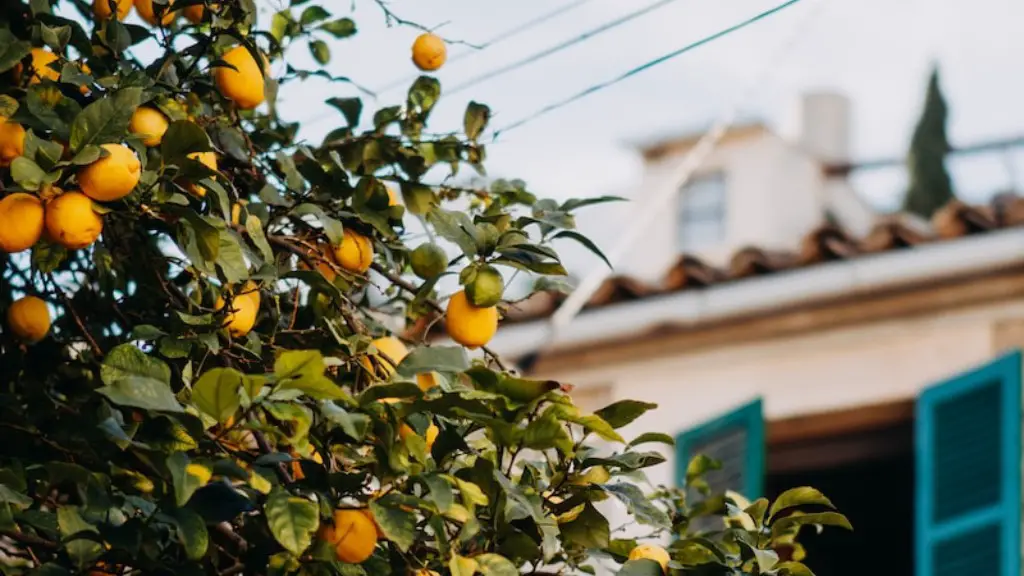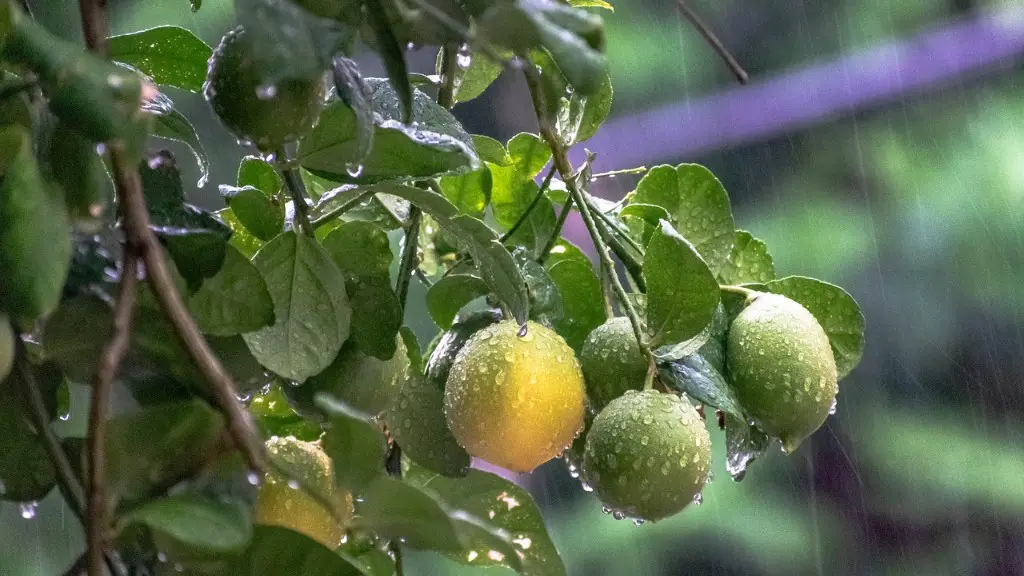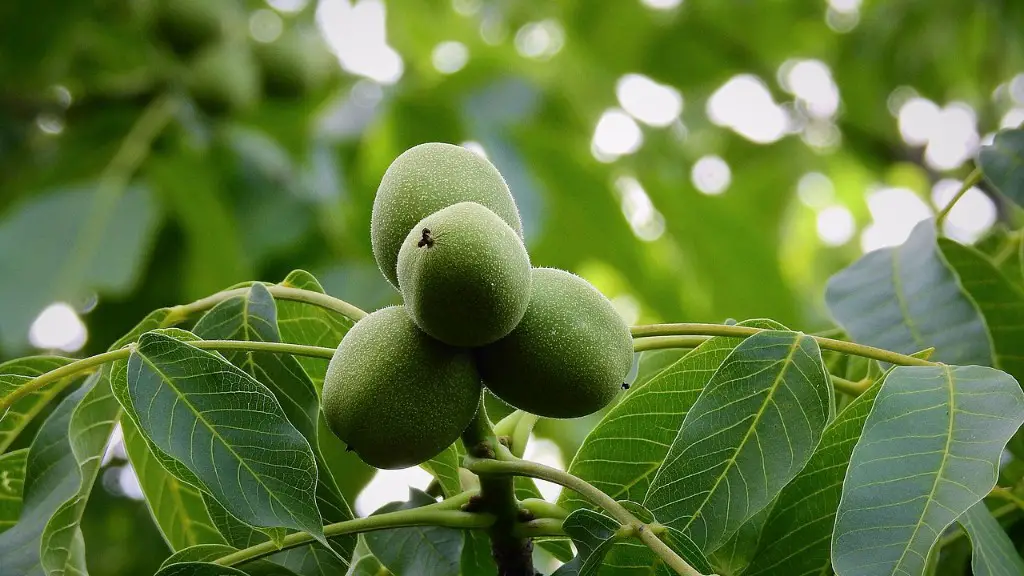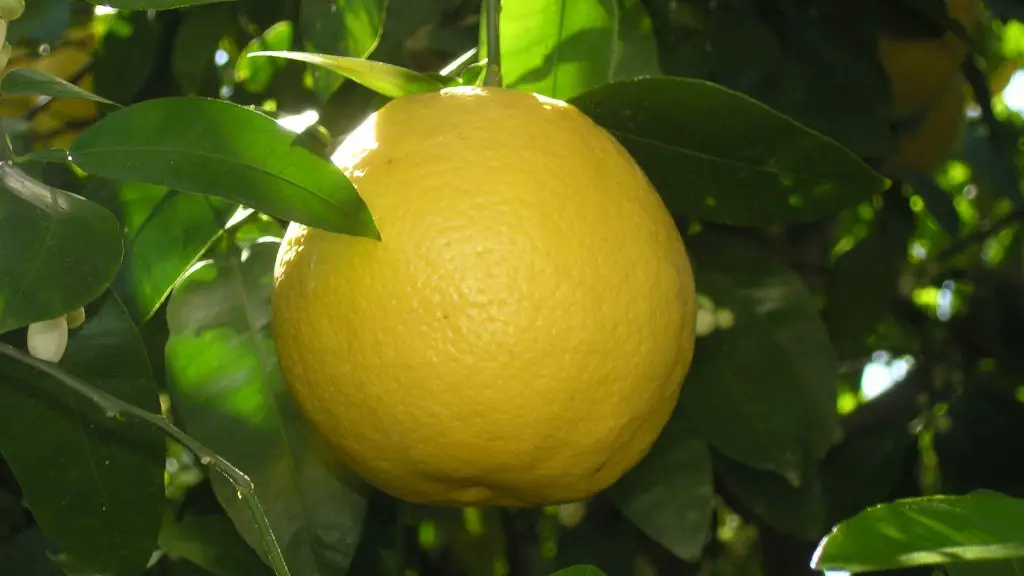People often ask: how hard is it to grow a lemon tree? The answer isn’t straightforward. In many cases, it’s possible to cultivate a lemon tree with minimal effort, but it requires knowledge, commitment, and a bit of care. In this article, we’ll consider the difficulties and rewards of cultivating a lemon tree.
The first step in growing a lemon tree is collecting the necessary components. If you intend to start from seed, you might need to purchase or borrow an already existing lemon. If you don’t have access to a lemon or a lemon tree, you’ll need to purchase a lemon or lemon tree from a nursery. In either case, you’ll need to make sure you have the right variety. Citrus trees come in a variety of sizes, shapes, and sizes, and each type has different growth requirements. It’s important to select a variety suited to your location, soil, and climate.
The best way to start your lemon tree is to prepare the soil. A quality soil mix is key. The soil should be kept moist but not wet. A soil amender such as compost or manure, can help ensure a healthy tree and strong yields. Proper drainage is also essential for growing a lemon tree, so it’s important to ensure the soil isn’t waterlogged.
In addition to soil preparation, you’ll need to choose the right site for your tree. Citrus trees prefer warm, sunny sites, so they should be planted in an area with plenty of direct sunlight. You should also keep in mind that citrus trees are not frost-tolerant and are best suited for warmer climates.
Now comes the hard part: proper care. If you’re lucky, your lemon tree may thrive with minimal effort. However, some maintenance is required, regardless of the tree’s growth rate. Pruning is important for maintaining a tree’s shape and promoting new growth. A periodic application of fertilizer can also help ensure healthy growth.
Successfully growing a lemon tree requires staying on top of disease and pest issues. Common citrus pests such as aphids, mites, and scale insects can damage a tree’s foliage and fruit. Prevention is the best defense, so regular applications of pesticides and/or horticultural oils are essential. Regularly scouting the tree is also a good way to identify potential problems early.
Finally, watering is essential for any citrus tree. Irrigating during periods of drought and ensuring the soil is kept moist but not saturated is the key to happy, healthy trees. As your tree matures, you’ll need to adjust the amount of water to match the tree’s growth rate.
Types of Lemon Trees
When growing a lemon tree, it’s important to select the right variety. Common varieties of lemon trees include the Eureka, Lisbon, Meyer, and Villaflor lemons. Each of these varieties has different characteristics and growth requirements. Eureka lemons, for example, are more resilient and produce larger fruits than most other lemon varieties. The Meyer lemon, on the other hand, is a hybrid of the Eureka and the Mandarin orange and produces smaller, more fragrant fruits than other lemon varieties.
In some cases, it’s possible to cultivate dwarf citrus trees, which are easier to manage and require less space. These trees usually produce smaller fruits, although the quality is not always as high. Lastly, there are seedless lemon varieties, which produce lemons with no seeds. These varieties are a great choice if you don’t want to deal with the hassle of seeds.
No matter which variety you choose, it’s important to consider the environmental characteristics of your location. In cold climates, it might be best to choose a variety suited to colder weather, such as the Lisbon lemon or the Meyer lemon. Alternatively, in warm climates, you may choose a heat-tolerant variety, such as the San Diego Eureka or the Villaflor.
Once you’ve chosen the right variety for your location, you’ll need to take care of your tree to ensure it remains healthy and productive. Well-maintained lemon trees can be a source of enjoyment and pride for years to come.
Picking and Storing Lemons
Knowing when to pick lemons is the key to successful harvest. The fruits should not be picked until the skins are fully yellow and glossy. Lemons mature much faster in warmer climates, so you should familiarize yourself with the optimal harvest times for your particular location.
Once you harvest the lemons, you’ll need to store them properly. Lemons can be stored in the refrigerator or at room temperature, but they should not be placed in direct sunlight or near other fruits or vegetables. Lemons can usually stay fresh for several weeks at room temperature, or several months in the refrigerator.
If you don’t plan to use a harvest of lemons right away, you can always freeze them. Lemons can be frozen whole or in slices. This can be an effective way to preserve a big harvest for future use.
Once the lemons are frozen, you’ll need to thaw them before using. This can be done in the refrigerator overnight or for a few hours at room temperature.
Preserving Lemons
Once you have a good supply of lemons, you may want to preserve them for future use. There are several ways to preserve lemons, including juicing, drying, pickling, or preserving in syrup.
When juicing lemons, be sure to strain the juice to remove any pith or seeds. Then, you can freeze the juice in ice cube trays or store it in a tightly sealed container in the refrigerator. The juice will stay fresh for several months.
If you’re looking to preserve lemons for an extended period, drying or pickling are great options. Dried lemons can be used for tea, infused oils and vinegars, and a variety of dishes. Pickled lemons can also keep for several months and are a popular ingredient in Middle Eastern and North African cooking.
Lastly, you can preserve lemons in syrup. This is a great way to preserve lemons for up to a year or longer. To make a simple syrup, mix equal parts of sugar and water and bring it to a boil. Then, reduce the heat and add slices of lemon or lemon rind. Simmer for 15-20 minutes, then let cool and store in an airtight container in the refrigerator.
Growing Lemon in Containers
In some cases, growing lemon trees in containers can be an effective way to produce lemons without taking up a lot of space. Containerized lemon trees require all the same care as those planted in the ground, but watering and fertilizer applications may need to be performed more often due to the limited soil volume.
When growing lemon trees in containers, it’s important to select the right variety. Dwarf citrus trees are ideal for containers since they remain small and manageable. Eureka and Meyer lemons also work well in containers as long as the pot is large enough to accommodate the tree’s roots.
Selecting the right pot is also essential for success. Ideally, the container should have plenty of drainage holes and be slightly larger than the root ball. The soil should also be of good quality and designed for use in containers. Lastly, make sure the pot gets plenty of sunlight and has adequate protection from cold temperatures.
If you’re looking to cultivate a lemon tree but don’t have much space, growing in a container is a great option. As long as you select the right pot and variety, you can have a healthy and productive lemon tree in your garden.
Problems and Solutions
In some cases, lemon trees may be affected by various diseases or pests. Common problems include yellowing leaves, lesions, blotches, and dieback. Prevention is the best defense, so it’s important to keep the tree healthy by providing adequate water and fertilizer. Regular applications of pesticides and horticultural oils can also help keep pests in check.
If your tree is already affected by pests or diseases, it’s important to act quickly. In some cases, timely applications of insecticides, fungicides or other treatments can help protect the tree and restore its health. In worst-case scenarios, the tree may be beyond saving, in which case you may need to consider replanting.
Lastly, make sure to inspect your tree regularly for nutrient deficiencies. Heavily-fruiting lemon trees can often become deficient in certain nutrients, which can lead to yellowing leaves and reduced yields. An appropriate fertilizer can help replenish the soil and ensure healthy growth.
Growing a lemon tree is a rewarding experience, but can be challenging if not done properly. With the right preparation, knowledge, and care, you can cultivate a beautiful and productive lemon tree that will reward you with sweet, juicy lemons for years to come.



